Having been a fundraiser for longer than I’d care to admit, I’ve opened my fair share of BREs. I always looked forward to the replies that were a little different: ones that included a note from the donor; others where the donor or prospect took the time to correct all the grammatical errors in our direct mail appeals (admit it, you’ve received these); and, of course, the ones that included a ‘different from average’ donation.
However, most of the reply coupons were pretty standard: donations were noted and processed, and those marked ‘deceased’ caused a brief moment of sadness before the donor was marked as such in the database.
A letter I received recently from Carefor Health and Community Services made a light bulb go off over my head when it comes to those latter, deceased, donors.
Here’s the background. If you’ve been reading our blog for a while, you’ll know that I lost my beloved Grandmother to cancer late last year. What you wouldn’t know is that I’ve been living in her house since May while our house undergoes a major renovation. As a result, I’m getting all of her mail and, for the first time in my life, I’m on the other end of that BRE: I’m the one who is writing ‘deceased’ on reply coupons and returning them to the many charities my grandmother supported.
I suspect most of those charities are doing what I used to do: noting the information in the database and moving on. But have any of them taken the time to think this through? Is there an opportunity here? Room for engagement?
Check out this brilliant letter I received a few weeks after returning a reply coupon to Carefor (click to see the full-size letter!)
What’s brilliant about this?
- They correctly assumed that someone close to the deceased individual would be receiving the letter (even if we had decided to immediately sell the house, we still would have had my grandmother’s mail forwarded for quite some time).
- They also correctly assumed that I would have a warm response to their cause. In fact, Carefor nurses and personal support workers were a big part of my grandmother’s life during her last few months. I met them and got to know them during that difficult time.
- They were smart to point out my grandmother’s history of giving. I had no idea she’d been a donor for so long!
You know what? This letter triggered all the right responses in me: it had an emotional impact. Know what else? I went online and gave.
This post was written by Leah Eustace, ACFRE, former Principal and Chief Idea Goddess at Good Works.



Thanks for posting this Leah – I love this letter too, and like you, had no idea Grandma had donated for such a long time. Very, very nice to receive!
Hi Leah – what a great posting, and a very sweet connection you have made with your Grandma’s history as a donor. Thank you for sharing such a personal story, and for translating this into a very helpful stewardship practice. I have had the privilege of connecting with families of deceased donors in similar ways and always found it the right thing to do to convey wishes and to also encourage generational giving.
Thanks for your always great advice & congratulations on the exciting formation of GoodWorks! Nice of you to reach out to me this morning on LinkedIn, too!
Warmest and best to your family, Melissa Munro
Thanks so much for the kind words Melissa!
You know what else works for me? Someone took the time and effort to personalize the letter by signing their name by hand. This may seem trivial to most, but to me it says “I cared about her donations, I care about your loss; you matter, and I hope you donate in the future because every penny matters”.
Just my 2 cents. 😉 Take care, Leah!
Great comment Scott. It only takes an extra few seconds to pick up a pen and add a signature, but the impact is huge.
Thanks again for the idea Leah. I’m happy to report back that I’m going to start doing this with our donors. Such a lovely gesture!
Fantastic Anne! Be sure to let me know how it goes.
Brilliant. Swiping. Thanks!
Thanks Mary. I’d love to hear about feedback you get.
Leah, what a heart warming post with so many valuable messages.
Thank you for sharing.
Sincerely
Steve Georgopoulos
Hi Leah what a great posting, and a very sweet coictnenon you have made with your Grandma’s history as a donor. Thank you for sharing such a personal story, and for translating this into a very helpful stewardship practice. I have had the privilege of connecting with families of deceased donors in similar ways and always found it the right thing to do to convey wishes and to also encourage generational giving. Thanks for your always great advice & congratulations on the exciting formation of GoodWorks! Nice of you to reach out to me this morning on LinkedIn, too!Warmest and best to your family, Melissa Munro
[…] who cared about your cause, and the people who are grieving for the loss of their loved one. Here’s a copy of the letter if you’re […]
Leah, the link to the sample of the Carefor letter no longer works and I am very interested in creating one for our organization. any chance I could still access the letter?
Hi Patty, thanks for letting us know! This link is now fixed, so you shouldn’t have any trouble accessing it:)